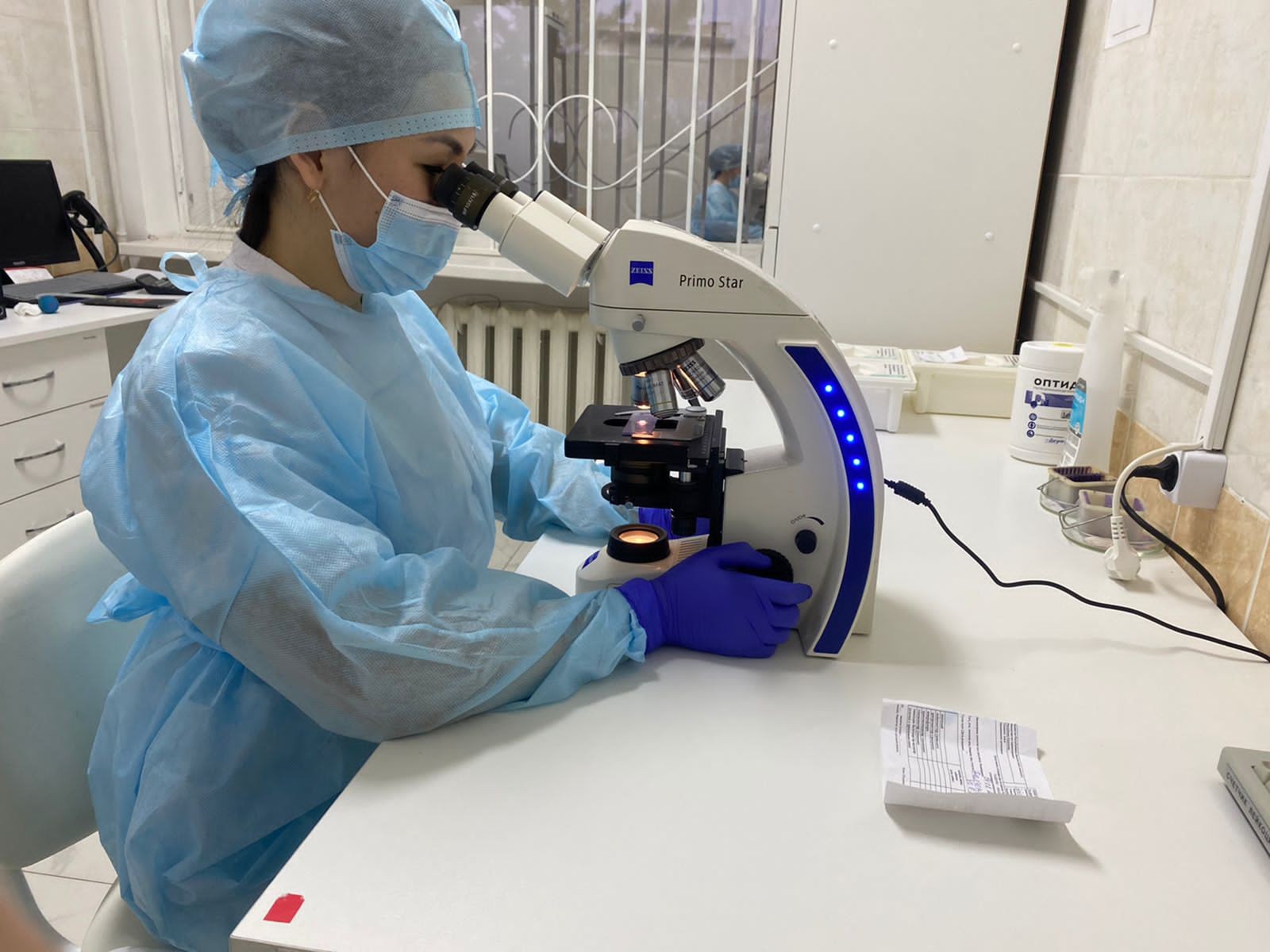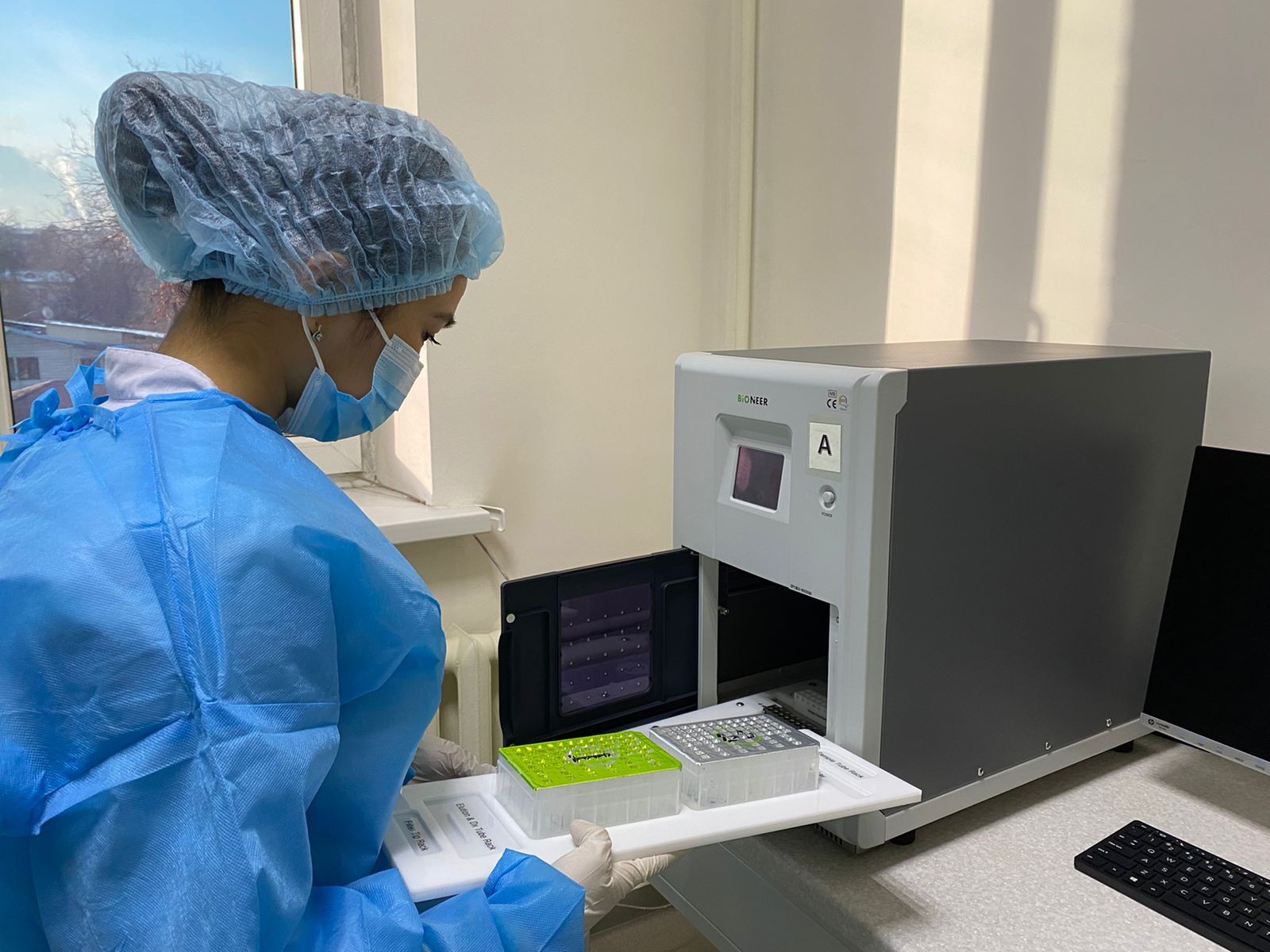
Обычная версия сайта
Republic of Kazakhstan, Almaty, Raimbek Ave., 60
Location map+7 (727) 39742 23 Reception
+7 (727) 39742 17 Registry
+7 (727) 39742 06 Helpline
1414 Single contact center


Обычная версия сайта
Republic of Kazakhstan, Almaty, Raimbek Ave., 60
Location map+7 (727) 39742 23 Reception
+7 (727) 39742 17 Registry
+7 (727) 39742 06 Helpline
1414 Single contact center

February 17, 2023
February 17 is the Day of Prevention of Sexually Transmitted Infections (STIs). Kazakhstan dermatovenerologists have noted in recent years a steady trend towards a decrease in the incidence of the main types of STIs.
In comparison with 2022, Kazakhstanis have become less ill with syphilis by 15 percent, trichomoniasis by almost 5, gonococcal infection – 1.3 percent.
The positive trend is a consequence of preventive measures aimed at the formation of medical and social activity in the population, motivation of a healthy lifestyle and education of safe sexual behavior in the younger generation.
In 2019, clinical protocols for the diagnosis and treatment of syphilis, chlamydia, gonococcal infections were updated in accordance with international recommendations, in 2022 - according to new WHO and CDC recommendations. The syphilis diagnostic algorithm has been completely revised. For the diagnosis of urogenital infections, accurate diagnostic tests are used: PCR and culture testing to determine sensitivity to antibiotics. Preparations have begun for the use of treponemal tests for the diagnosis of syphilis, which have 100% specificity and sensitivity.
However, today there is no clear statistical mechanism in the country to account for STI cases. With the transfer of testing to a competitive environment, only data from state medical institutions are available to official statistics. Patients who go to private medical centers and laboratories are not included in the statistics. Although in order to verify the diagnosis and receive treatment, they should be sent to skin and venereological dispensaries. In order to systematize country statistics, there is a need for all subjects of the country's health care, regardless of ownership forms, to transfer primary positive results for STIs to a single information center.
Experts note that STIs can become the main causes of inflammatory diseases of the pelvic organs, internal organs, adverse pregnancy outcomes and infertility. Many STIs are asymptomatic or with minor symptoms, while they can cause severe complications. Ignorance and lack of information, self-medication and treatment on the Internet lead, unfortunately, to chronic stages and complications that require more serious and long-term treatment in the future.
Dermatovenerologists strongly advise to contact only medical institutions and pay attention to the general characteristics of STIs:
- Transmitted during sexual contacts.
- Many infections occur covertly and are accidentally detected during examination.
- In case of complications, they can affect the nervous system, liver, heart, skin, further lead to skin and joint lesions, vision loss, etc.
- They do not heal themselves.
- Some of these diseases are transmitted not only sexually, but also through blood (non-sterile needles, syringes, tattooing tools, ear piercing), from mother to child during pregnancy and childbirth, by household means.
- Infection with several STIs at the same time may occur.



